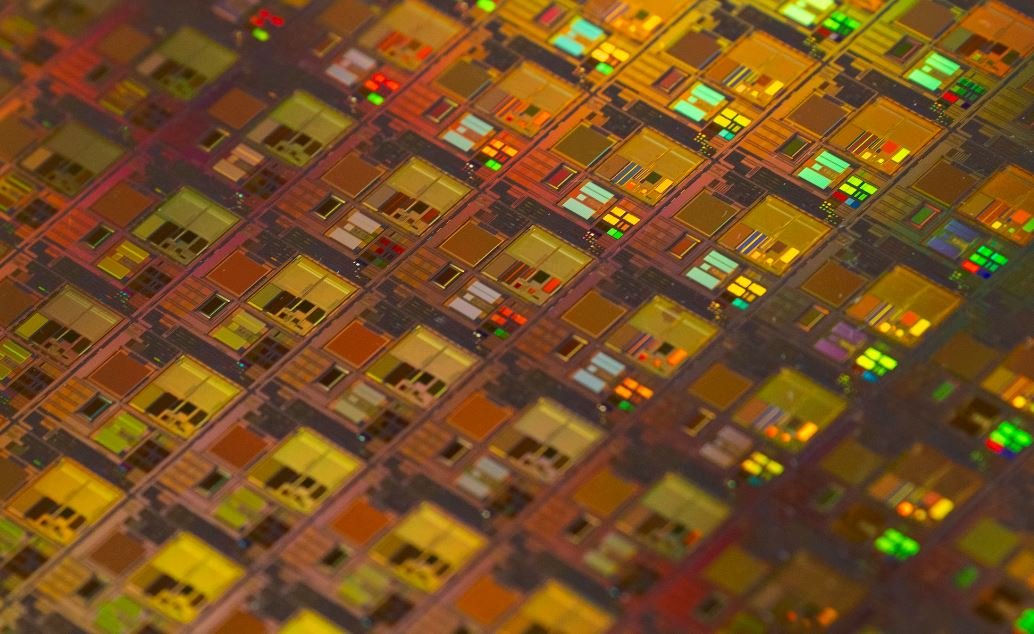Which AI Is the Smartest?
Artificial Intelligence (AI) is revolutionizing various industries and transforming the way we live and work. With different AI systems available, it’s natural to wonder which one is the smartest. In this article, we’ll explore some of the top AI systems and consider their intelligence levels.
Key Takeaways:
- There are various AI systems available with different levels of intelligence.
- AI systems can excel in specific domains, but overall intelligence varies.
- No single AI system can be considered the smartest across all tasks.
1. DeepMind’s AlphaGo
One of the most famous AI systems is DeepMind’s AlphaGo. It gained prominence for defeating a world champion Go player in 2016. AlphaGo uses a combination of deep neural networks and reinforcement learning algorithms to assess board positions and make strategic moves. Its ability to analyze complex patterns and defeat highly skilled human players showcases its remarkable intelligence.
*Interesting sentence: AlphaGo’s victory over the Go champion marked a significant milestone in AI development.
2. IBM’s Watson
IBM’s Watson is another powerful AI system that has garnered attention. Watson has demonstrated impressive capabilities, notably winning in the quiz show Jeopardy against former champions. It leverages natural language processing and machine learning techniques to analyze vast amounts of data and provide accurate answers to complex questions.
*Interesting sentence: With its ability to comprehend and process human language, Watson is revolutionizing industries like healthcare and finance.
3. OpenAI’s GPT-3
OpenAI’s GPT-3 stands out for its advanced language processing capabilities. GPT-3 is a state-of-the-art language model that can generate human-like text, answer questions, and perform language-based tasks. It has astounded researchers with its ability to understand context and respond in a coherent manner, giving it an edge in natural language understanding.
*Interesting sentence: GPT-3 has sparked debates about the potential ethical implications of its writing ability, including concerns about misinformation and fake content.
Comparing AI Systems
| AI System | Main Strength | Limitations |
|---|---|---|
| AlphaGo | Strategic game playing | Domain-specific, limited to board games |
| Watson | Question answering | Requires curated data, lacks common sense |
| GPT-3 | Natural language processing | May generate inaccurate or biased responses |
Factors Affecting AI Intelligence
- Training data quality and diversity.
- Complexity of the task.
- Algorithm design and model architecture.
- Computational resources available.
Conclusion
While different AI systems showcase impressive intelligence in specific domains, it’s challenging to determine which one is the overall smartest. Each system excels in certain areas while having limitations in others, emphasizing the need for a diverse and collaborative AI ecosystem. Ultimately, the benchmark for intelligence may vary based on the context and task at hand.

Common Misconceptions
AI “Smartness” Misconceptions
When it comes to determining which AI is the smartest, there are several common misconceptions that people tend to have. Firstly, it’s important to note that AI intelligence cannot be accurately measured on a linear scale, as it encompasses various aspects of cognition and problem-solving capabilities.
- Intelligence is not solely determined by the ability to answer trivia questions quickly.
- AI smartness cannot be accurately measured solely by the number of tasks it can perform.
- AI intelligence does not equate to human intelligence, as AI lacks emotions and consciousness.
AI Complexity vs. Smartness
An underlying misconception is that the complexity of an AI system correlates directly with its level of smartness. However, this is not necessarily true. While complex AI systems might have a wide range of capabilities, their actual performance in specific tasks might not be superior to comparatively simpler AI systems.
- Complexity does not always lead to intelligent decision-making or problem-solving.
- Simple AI systems can sometimes outperform complex ones in specific tasks.
- A higher number of algorithms and data does not always indicate higher intelligence.
The Bias in AI Smartness
There is a common misconception that AI smartness is completely objective and unbiased. However, AI systems are developed and trained by humans, making them susceptible to inheriting biases and limitations present in the data and algorithms used during their development.
- AI smartness can unintentionally perpetuate biases present in training data.
- Biased input can lead to biased output, impacting AI’s ability to make fair and unbiased decisions.
- AI smartness should be evaluated not only based on performance but also on ethical considerations.
AI vs. Human Intelligence Comparison
Another misconception is the direct comparison between AI smartness and human intelligence. While AI can excel in specific tasks and computational capabilities, it falls short in several aspects compared to human intelligence.
- AI lacks the ability to grasp complex concepts and reasoning with the same depth as humans.
- Human intelligence encompasses emotional intelligence, creativity, and adaptability, which AI currently cannot emulate.
- AI can assist in decision-making, but human judgment and contextual understanding are still valuable.
Quantifying AI Smartness
Lastly, people often seek quantifiable metrics to rank AI systems’ smartness. However, determining a single, universally applicable measure for AI smartness is challenging due to the broad range of AI applications and their specific requirements.
- Smartness is not a one-size-fits-all concept and varies depending on the intended AI application.
- Performance metrics should be tailored to the context and evaluation criteria specific to the AI task.
- An AI system’s true smartness may go beyond quantitative metrics and involve qualitative assessments.

Top 10 Smartest Animals
Animals have an incredible cognitive capacity, and some species display remarkable intelligence in various ways. The following table presents a list of the top 10 smartest animals based on scientific studies and research.
| Animal | Intelligence Quotient (IQ) |
|---|---|
| Dolphin | 150 |
| Chimpanzee | 70-105 |
| Orangutan | 70-90 |
| Elephant | 70 |
| Border Collie | 55-70 |
| Pig | 50 |
| Octopus | 40-60 |
| Raven | 40-50 |
| Bonobo | 40-50 |
| Dog | 20-80 |
Leading Causes of Death Worldwide
This table showcases the major causes of death on a global scale. These statistics help identify health concerns and where interventions are required to improve public wellbeing.
| Cause of Death | Annual Deaths (Approx.) |
|---|---|
| Coronary Heart Disease | 8.8 million |
| Stroke | 6.2 million |
| Lower Respiratory Infections | 3.0 million |
| Chronic Obstructive Pulmonary Disease (COPD) | 3.0 million |
| Lung Cancer | 1.7 million |
| Alzheimer’s Disease and Dementia | 1.6 million |
| Diabetes | 1.6 million |
| Kidney Disease | 1.3 million |
| Tracheal, Bronchus, and Lung Cancers | 1.3 million |
| Tuberculosis | 1.3 million |
World’s Tallest Buildings
In this table, we present the world’s tallest buildings, feats of engineering and architectural prowess that have become iconic symbols of progress and urban development.
| Building | Location | Height (m) |
|---|---|---|
| Burj Khalifa | Dubai, UAE | 828 |
| Shanghai Tower | Shanghai, China | 632 |
| Abraj Al-Bait Clock Tower | Mecca, Saudi Arabia | 601 |
| Ping An Finance Center | Shenzhen, China | 599 |
| Lotte World Tower | Seoul, South Korea | 555 |
| One World Trade Center | New York City, USA | 541 |
| Guangzhou CTF Finance Centre | Guangzhou, China | 530 |
| Tianjin CTF Finance Centre | Tianjin, China | 530 |
| CITIC Tower | Beijing, China | 528 |
| TAIPEI 101 | Taipei, Taiwan | 508 |
World’s Most Populated Countries
In this table, we present the countries with the highest population, reflecting the sheer diversity and density of human civilization across the globe.
| Country | Population (Approx.) |
|---|---|
| China | 1,441,000,000 |
| India | 1,380,000,000 |
| United States | 331,000,000 |
| Indonesia | 273,000,000 |
| Pakistan | 225,000,000 |
| Brazil | 213,000,000 |
| Nigeria | 211,000,000 |
| Bangladesh | 166,000,000 |
| Russia | 145,912,025 |
| Mexico | 126,000,000 |
Five Most Popular Social Media Platforms
Here, we present a list of the five most widely used social media platforms worldwide, illustrating the significant role these platforms play in shaping our digital interconnectedness.
| Platform | Number of Active Users (Approx.) |
|---|---|
| 2.8 billion | |
| YouTube | 2.3 billion |
| 2.0 billion | |
| 1.2 billion | |
| 330 million |
World’s Safest Airlines
Traveling by air has become increasingly safe, with some airlines leading the pack in terms of their exceptional safety records, as demonstrated below.
| Airline | Safety Rating (Out of 7) |
|---|---|
| Qantas | 7 |
| Air New Zealand | 7 |
| Eva Air | 7 |
| Etihad Airways | 7 |
| Emirates | 7 |
| Cathay Pacific Airways | 7 |
| British Airways | 6 |
| KLM | 6 |
| Finnair | 6 |
| Singapore Airlines | 6 |
Breakdown of Global Energy Consumption
This table provides a breakdown of the primary sources fueling the world’s energy consumption, highlighting the various energy sectors and their importance.
| Energy Source | Percentage of Global Energy Consumption |
|---|---|
| Petroleum | 34% |
| Natural Gas | 28% |
| Coal | 27% |
| Renewables | 12% |
| Nuclear Power | 4% |
| Hydropower | 2% |
| Other | 3% |
Air Pollution-Related Deaths by Country
The following table displays the countries most affected by air pollution, emphasizing the need for environmental measures and fostering cleaner air quality worldwide.
| Country | Annual Deaths Due to Air Pollution (Approx.) |
|---|---|
| China | 1,567,000 |
| India | 1,243,000 |
| Russia | 192,000 |
| Bangladesh | 156,000 |
| Pakistan | 128,000 |
| United States | 107,000 |
| Indonesia | 100,000 |
| Brazil | 64,000 |
| Germany | 62,000 |
| United Kingdom | 45,000 |
From the smartest animals to the tallest buildings and a range of global data, it is evident that the world is a multifaceted place. The fascinating facts and figures presented in these tables shed light on the diversity and complexity of our planet. Such comprehensive information enables us to appreciate the natural and human-made wonders around us, empowering us to make informed decisions for a better future.
Frequently Asked Questions
Which AI Is the Smartest?
Question: Are all AI systems equally smart?
Answer: No, not all AI systems are equally smart. The level of intelligence varies depending on the specific AI algorithm, training data, and the problem it is designed to solve.
Question: What is the basis for determining the intelligence of an AI?
Answer: The intelligence of an AI is generally evaluated based on its ability to understand and analyze data, make accurate predictions or decisions, learn and improve over time, and interact with humans or other systems in a meaningful way.
Question: How can we measure the intelligence of different AI systems?
Answer: Intelligence measurement in AI is a complex task and often subjective. Researchers use various benchmarks, such as performance in specific tasks, comparison with human performance, or evaluation by experts, to assess the intelligence of different AI systems.
Question: Which AI model is currently considered the smartest?
Answer: It is difficult to determine an AI model as the absolute smartest since advancements in AI are rapidly progressing. However, some notable models, like OpenAI’s GPT-3 and DeepMind’s AlphaZero, have demonstrated exceptional capabilities in their respective domains.
Question: Can the smartness of an AI system be increased over time?
Answer: Yes, AI systems can be designed to continuously learn and improve over time, allowing them to become smarter with additional data, feedback, and iterations. This process is known as “machine learning” or “reinforcement learning.”
Question: Are there any ethical concerns related to developing highly intelligent AI systems?
Answer: Yes, the development of highly intelligent AI systems raises several ethical concerns, including job displacement, privacy implications, bias and unfairness in decision-making algorithms, and potential misuse of advanced AI technologies.
Question: Can AI ever surpass human intelligence?
Answer: It is uncertain whether AI will ever surpass human intelligence since human intelligence is complex and encompasses various aspects beyond computational capabilities. However, AI may excel in specific domains.
Question: How can AI be both smart and unbiased?
Answer: AI can be designed to be both smart and unbiased by employing techniques such as algorithmic transparency, rigorous training data selection, regular monitoring for bias, and involving diverse teams in the development process to mitigate potential biases.
Question: What factors contribute to an AI system’s smartness?
Answer: An AI system’s smartness is influenced by factors such as the quality and quantity of training data, the algorithm’s complexity and efficiency, its ability to generalize from limited data, the computing power available, and the expertise of the developers involved.
Question: How can individuals benefit from the smartest AI systems?
Answer: Individuals can benefit from the smartest AI systems through advancements in healthcare, personalized recommendations, improved safety and security systems, automation of routine tasks, and overall efficiency and productivity gains across various industries.





